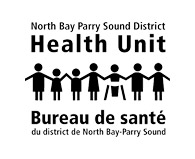PARRY SOUND, ON-Medical Officer of Health Dr. Jim Chirico is calming fears about the COVID-19 virus in our area.
The Public Health Agency of Canada has assessed the public health risk associated with the virus and Chirico concurred, “We really want to emphasize that the risk in Canada and the risk here is still low.”
As of Monday, 77 cases of COVID-19 have been confirmed in Canada, with 34 in Ontario and zero cases in the North Bay Parry Sound District Health Unit’s catchment area.
For more information on COVID-19, click here.
Monday, the first confirmed death from the virus was reported in Canada. The patient that died was one of two people at a North Vancouver care home diagnosed last week. B.C. has 27 confirmed cases of COVID-19, there are six in Alberta and four in Quebec, in addition to the 34 in Ontario. Health officials have said four of the Ontario patients have already recovered.
“Those that are at risk are older people with underlying health conditions. That’s who we need to try to protect the best we can,” observed Chirico.
With March break approaching, Chirico said the decision to travel should be weighed carefully. “It’s really important to do a risk assessment and then decide. There are many factors you’d want to consider: where you’re going; the number and severity of cases there; whether there are travel restrictions in place; will you have access to medical care?”
Officials say current patterns lead them to believe there will be more COVID-19 cases confirmed throughout Canada. As a result, local preparedness planning is important in order to minimize the impact on hospitals, to make sure that critical infrastructure continues to work and that day-to-day functions are able to be maintained.
Said Chirico, “We anticipated that there are going to be more cases and that deaths will occur. We have to look at similarities with influenza so we can put it into perspective. Every year we have 3,500 [flu-related] deaths from hundreds of thousands of cases and we’re nowhere near that [with COVID-19].”
Simple hygiene practices can help you stay healthy:
- regular hand washing or using an alcohol-based sanitizer
- not touching your face
- covering your cough or sneeze
- staying home when sick – or making plans with your employer to work from home when sick
- avoiding close contact with people who are sick
It is not recommended that individuals use masks to prevent COVID-19, as moisture can build up in the mask, which makes them not effective.
The Health Unit advises the risk in our community is low, but it is good practice for households to be prepared for any emergency, such as a power outage or an infectious disease. Having supplies on hand for shorter (under 72 hours) and longer (above 72 hours) periods of time is a good practice all the time. Examples of ways to prepare would include:
- Have a supply of easy to prepare food.
- Check your regular prescription drugs to ensure you have enough supply in your home.
- Have any nonprescription drugs and other health supplies on hand, including pain relievers, stomach remedies, cough and cold medicines, hygiene products and vitamins.
- For pets, ensure you have enough food and supplies on hand.
- Talk with family members and loved ones about how they would be cared for if they got sick, or what will be needed to care for them in your home.
For more information on what to include in your preparedness kit, click here.
“The Health Unit is working with community stakeholders, such as hospitals, health care providers and municipalities, to ensure that preparations are made in case the risk assessment changes,” added Chirico.



